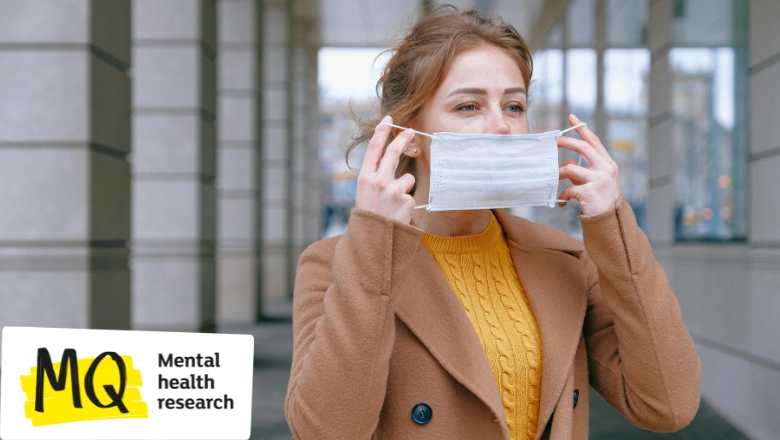Last week, a ruling was published rejecting calls from over 30 organisations to look at the impact the pandemic had on the mental health of children and adults as part of the Covid-19 Inquiry.
The ruling, announced by Baroness Hallett, chair of the Inquiry, means that Module 3 of the Inquiry will look only at children’s inpatient care and not at other aspects of mental health in our communities during and post-pandemic. This means only a very small aspect of mental health services will be included and not adult community, adult inpatient treatment nor Children and Adolescent Mental Health Services (CAMHS).
The ruling has left it unclear whether the Covid-19 Inquiry will include any consideration of the impact the pandemic had on the nation’s mental health at all.
Dr Sarah Hughes, the CEO of mental health charity Mind, publicly noted that millions of people who suffered and continue to suffer the mental health implications of the pandemic “will not have their voice heard”.
“{This} decision means key questions will go unanswered, questions like: Why was there no public mental health plan? Why were the psychiatric hospitals emptied at the same time as community care was shut down? There are many more questions and stories to be told.” Dr Sarah Hughes, CEO of Mind
The scale of the impact the pandemic had on mental health is being felt by a great many people even in 2024, four years after the first UK lockdowns. But rather than consider anecdotal evidence, the science speaks for itself.
Although the pandemic was a complex and difficult time for many, it unearthed and treasure trove of valuable lessons which can be learned from. Many difficult consequences of the pandemic such as effect on income, physical health and relationship changes as well as many others, may indirectly affect mental health but further research is needed.
However, MQ has worked to support researchers working hard in turn to understand the effects the pandemic has had on the nation’s mental health.
When the pandemic hit in 2020, through the NIHR Translational Collaborations, a group of academics from different clinical specialties came together to study the longer-term impact of being hospitalised with COVID-19 through the PHOSP-COVID project. The Brain Working Group of PHOSP brought together a wide range of UK researchers, clinicians and charities who wanted to investigate the long-term effects of COVID on mental, cognitive and neurological health to explore how these effects were related to individual patient characteristics and whole-body health.
The UK-wide Working Group met every week for almost 2 years, sometimes with 70 enthusiastic attendees sharing ideas based on what seen in the clinic, the latest evidence, or shared by people who have had COVID.
“The idea for the PHOSP project came about through these rich regular collaborative meetings and was supported by MQ who secured funding for it.” Dr Parisa Mansoori, co-author of PHOSP paper and MQ’s Research Programme Lead
The PHOSP study, supported by MQ and headed by Dr Maxime Taquet, revealed that months after leaving hospital for COVID-19 treatment, 25% of people experienced considerable symptoms of anxiety and depression, and 12% experienced symptoms of PTSD.
Many mental health patients reported an ongoing ‘brain fog’ – limited short-term memory and reduced thought.
“Since my illness I have been plagued by brain fog, concentration-induced fatigue, poor vocabulary, poor memory. I am unable to process the amount and scale of work that I would previously have done ‘stood on my head’.” Participant in the PHOSP study
People who’ve been hospitalised with Covid-19 experienced ongoing symptoms that affect specific parts of the body such as breathing, ability to exercise, fatigue, concentration, and mood, research supported by MQ Mental Health Research and the Wolfson Foundation focused on brain function and Covid-19 has revealed.
Early in the pandemic, studies were conducted into whether people with Covid-19 were at an increased risk of being diagnosed with brain disorders such as cognitive problems, depression, anxiety, psychosis, strokes, brain haemorrhage and more.
Dr Maxime Taquet and his colleagues found, “quite clearly”, that having Covid-19 was associated with a much greater risk of brain disorders than having something like the flu.
In addition to this, those who had pre-existing mental illnesses before the pandemic, an already vulnerable group, were exposed to greater risk of Covid-19 and also greater risk of worsening mental health.
“It might be sometimes more difficult for people with a psychiatric illness to self-isolate. They might have been more at risk of catching Covid-19 simply because the risk for them of being completely isolated was much greater than for most other people.” Dr Maxime Taquet, MQ researcher and academic clinical fellow at the Department of Psychiatry at the University of Oxford
Many researchers have publicly stated the clear link between mental health and the pandemic experiences, from a variety of perspectives. Professor Chris Brightling, a professor of respiratory medicine at the University of Leicester and the chief investigator for the PHOSP-COVID study, has stated the evident need for post-COVID-19 care to include mental health services.
Those who were admitted to hospital with COVID-19 was disproportionately male and from an ethnic minority background and those who have the most severe prolonged symptoms tended to be white women aged 40 to 60 who had at least two long term health conditions, such as asthma or diabetes, according to Professor Brightling.
While the Covid-19 Inquiry decision makes it unclear as to whether the obvious impact the pandemic had upon mental health will be considered further in the investigation, mental health science is making it very clear indeed.
According to research, the COVID-19 pandemic had and continues to have a profound effect on the mental health of our society and that effect needs further investigation. MQ will continue to work to ensure researchers are able to improve our understanding further.







